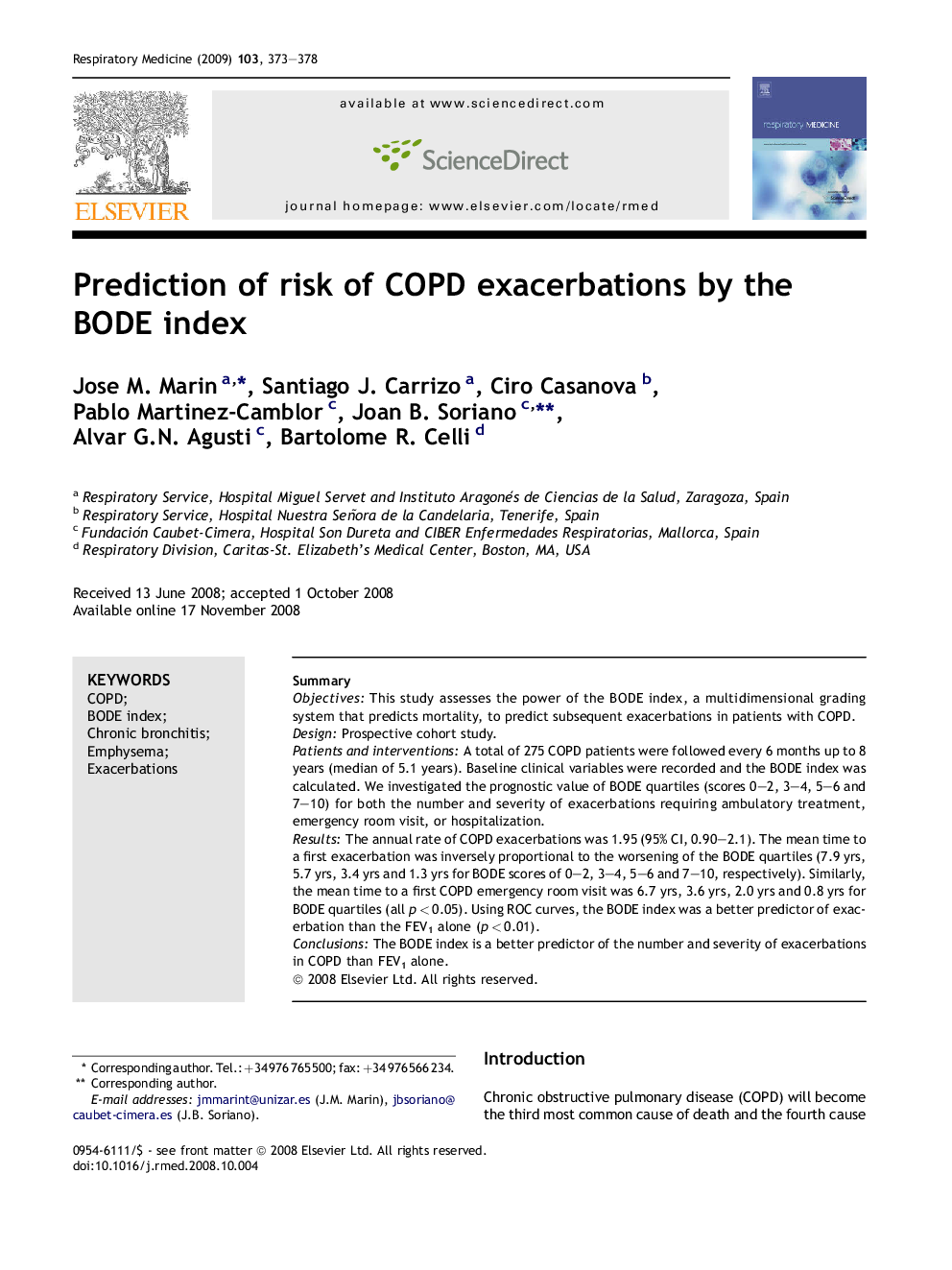| Article ID | Journal | Published Year | Pages | File Type |
|---|---|---|---|---|
| 4211149 | Respiratory Medicine | 2009 | 6 Pages |
SummaryObjectivesThis study assesses the power of the BODE index, a multidimensional grading system that predicts mortality, to predict subsequent exacerbations in patients with COPD.DesignProspective cohort study.Patients and interventionsA total of 275 COPD patients were followed every 6 months up to 8 years (median of 5.1 years). Baseline clinical variables were recorded and the BODE index was calculated. We investigated the prognostic value of BODE quartiles (scores 0–2, 3–4, 5–6 and 7–10) for both the number and severity of exacerbations requiring ambulatory treatment, emergency room visit, or hospitalization.ResultsThe annual rate of COPD exacerbations was 1.95 (95% CI, 0.90–2.1). The mean time to a first exacerbation was inversely proportional to the worsening of the BODE quartiles (7.9 yrs, 5.7 yrs, 3.4 yrs and 1.3 yrs for BODE scores of 0–2, 3–4, 5–6 and 7–10, respectively). Similarly, the mean time to a first COPD emergency room visit was 6.7 yrs, 3.6 yrs, 2.0 yrs and 0.8 yrs for BODE quartiles (all p < 0.05). Using ROC curves, the BODE index was a better predictor of exacerbation than the FEV1 alone (p < 0.01).ConclusionsThe BODE index is a better predictor of the number and severity of exacerbations in COPD than FEV1 alone.
